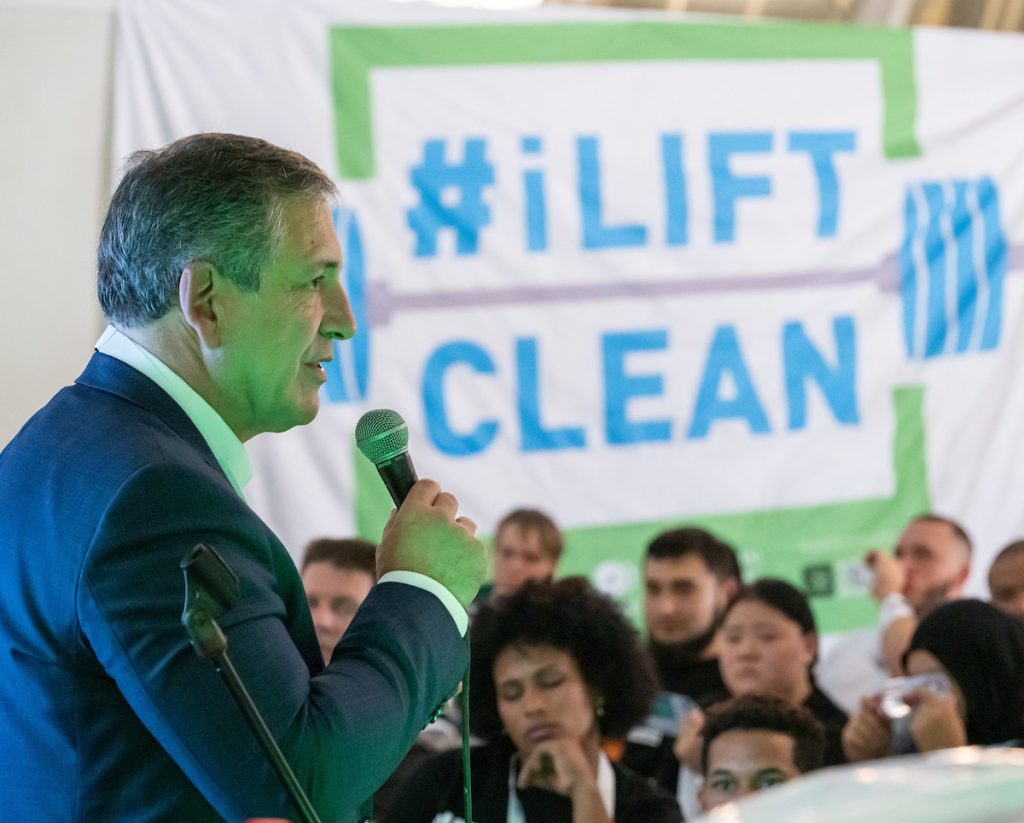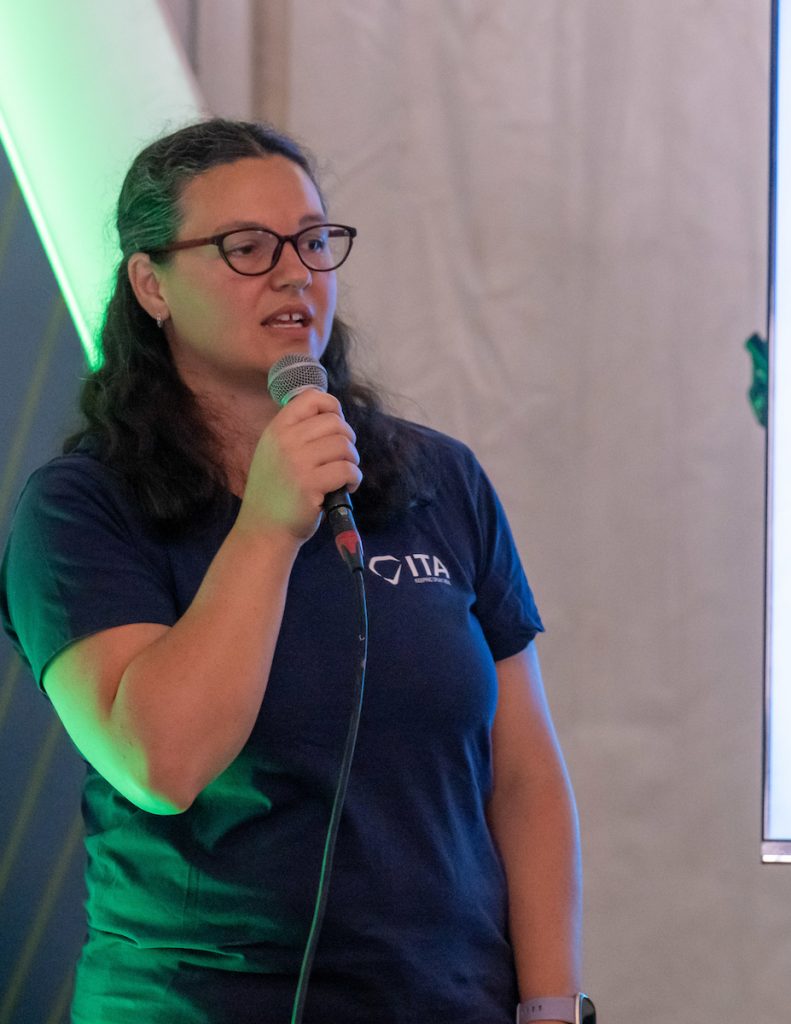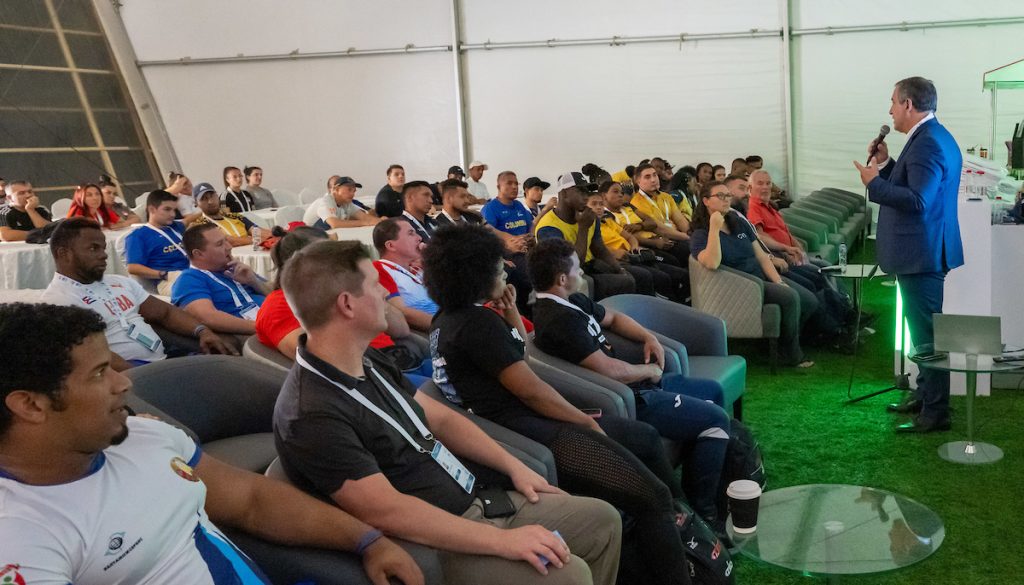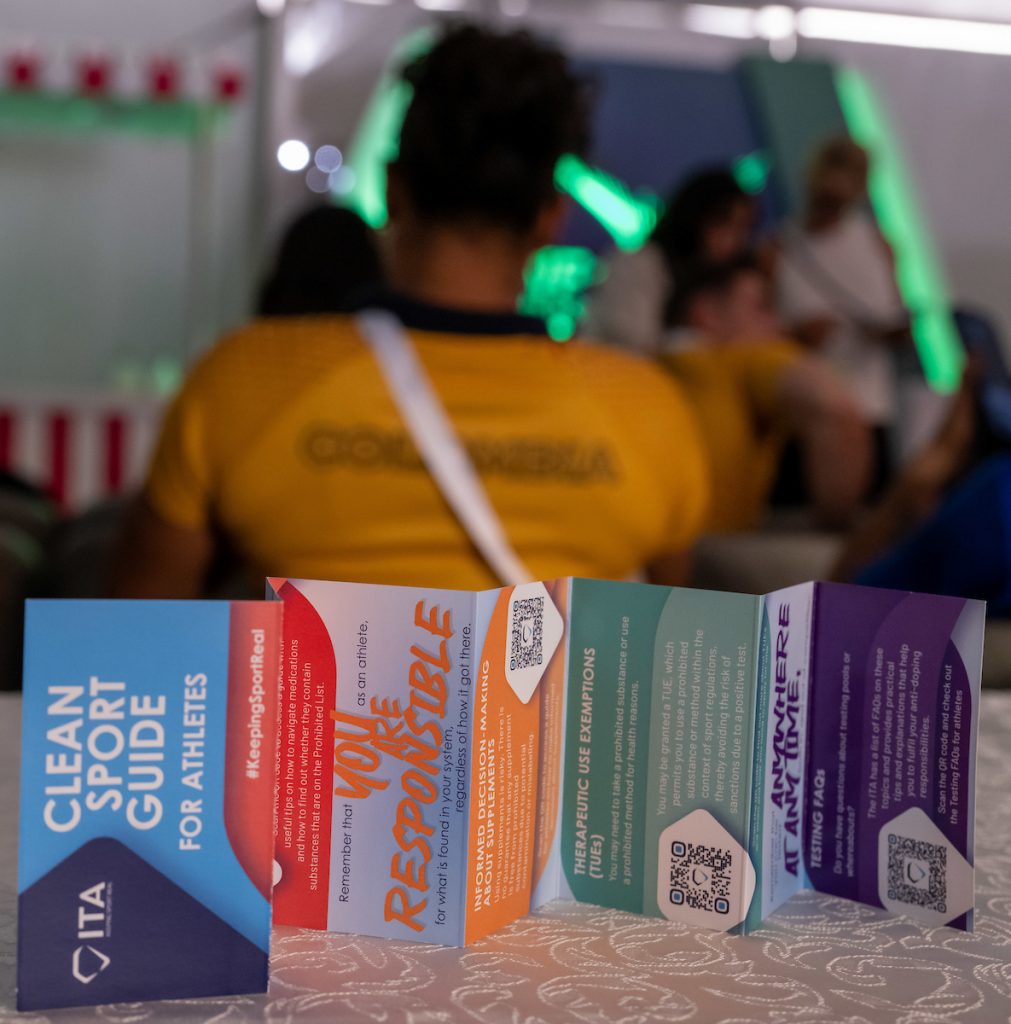More than 85 athletes and respective support personnel were today present at the IWF/ITA Anti-Doping Education Seminar, organised in Riyadh on the occasion of the IWF World Championships in Saudi Arabia. It was a privileged opportunity for many lifters and their entourage to acquire updated information about the anti-doping activities carried out by the International Testing Agency on behalf of our International Federation. The seminar was lectured by Christine Girard (CAN), ITA Ambassador, and double Olympic medallist in weightlifting. Antonio Urso, the IWF Secretary General, welcomed the participants to the meeting.
“Our International Federation is undertaking a huge transformation and this relates to the culture change that is needed in the field of doping. We had serious problems in the past, but we have changed the paradigm and today, thanks to the collaboration and partnership with the ITA we have a solid, transparent, and reliable strategy,” Mr Urso considered.

Antonio Urso, IWF Secretary General
The IWF official recalled one decisive area of improvement: “The level of education has dramatically increased and this is the best guarantee for a successful programme. The main problem with doping is the athletes’ entourage. If ethics is missing, this support personnel will oblige the athlete to cheat. We need to change this, and we are doing it!”
Mr Urso was very clear on IWF’s determination to eradicate doping in sport: “We don’t want cheaters in our Sport! We may lose some countries, punished by our strict rules, but if this is necessary, so be it! We want to keep only the people working honestly, with professionalism, and with a real sense of ethics. We are spending more than one-third of our annual budget on anti-doping operations. We could spend part of this money on development actions – it would be much more useful for so many countries. But, as we are 100% committed to ensuring a clean sport, this effort is still necessary”.
Christine Girard then briefed all the attendees on the specificities of the anti-doping policies, namely the definition and scope of an Anti-Doping Rule Violation, the knowledge of the Prohibited Substances’ list, the correct identification of eventual medication taken by the athletes, and the risks related with the intake of supplements.

Christine Girard, ITA Ambassador
“Unlike the medicaments, the labelling of supplements is not so strict, so you’ll never have the guarantee that the intake of supplements is risk-free. You must all be aware of that. There isn’t in the market a single supplement that is 100% safe!” she explained.
Besides the unethical aspect of doping, Ms Girard explained that the ingestion of prohibited substances “represents a huge danger to the athlete’s health. And in most of the cases, the consequences are irreversible, they will stay for all your life. You should never forget this!”
Born in January 1985, Christine Girard was one of the most talented Canadian lifters of her generation. She started in the sport when she was 10, much because of her sister’s influence. She progressed quickly and at the 2008 Olympic Games in Beijing, she was fourth in the 63kg – four years later in London, she did better, with a bronze medal in the same category.

Things could have ended there, but some years later, with the re-analysis of Olympic samples and consequent disqualification of several lifters, she was “upgraded” to the bronze for the 2008 Games and to the gold for the British rendezvous. “When the news came out in 2018, I had already my children, we were at home in Canada, and the new medals came. Of course, it was a great joy for me, but I had missed the ‘moment’ during the Games’ time. In London, had I won the gold while being there, I would have been the only Canadian with that status for three days. Imagine the marketing opportunities I lost on that occasion…”
After these unfortunate circumstances, Girard decided to get involved in anti-doping education. A way, according to the Olympic champion, to “prevent that a similar situation to mine could occur with others”. Named ITA Ambassador on this field, the Canadian, also a member of the IWF Anti-Doping Commission, wanted to “actively promote clean sport. It’s a beautiful fight, one that is definitively worth doing for all our athletes”.
At the Tokyo 2020ne Games, when her compatriot Maude Charron took the gold in the same category and with the same total (236kg) as Girard eight years before, the ITA Ambassador lived a rare moment of emotion: “I was very happy that she could enjoy her title, her gold medal there! I was already involved in the fight for a clean sport, so I thought that the efforts were paying off. All the athletes competing there, in Japan, looked in a much better health condition compared with the ones I had to face. That was definitively a sign that things were going in the right direction”.

Commenting on the words of Mr Urso concerning the “culture change” within the IWF circles, Girard admits: “It takes time, but we improved a lot! We arrived at a point where many coaches did not know how to prepare their athletes without doping. They had to learn everything from the beginning – results only come with hard work, not with ‘magic’ pills”.
Reflecting on the risks to the athletes’ health, the Canadian concedes that many “athletes are not aware of those very negative consequences. We need to educate them for this aspect so that they don’t regret their bad choices at a later stage of their lives”.
After this seminar, also attended by the CEO of the Saudi Arabian Andi-Doping Committee Mr Khudair Mohammad Alkhudhair, athletes and their entourage are invited to visit until September 11 the IWF/ITA Anti-Doping Education booth, located in the Fan Zone of the Championships. Christine Girard will run the stand and provide all relevant information to participants seeking further knowledge on this matter.
By Pedro Adrega, IWF Communications
Photos by Giorgio Scala/Deepbluemedia